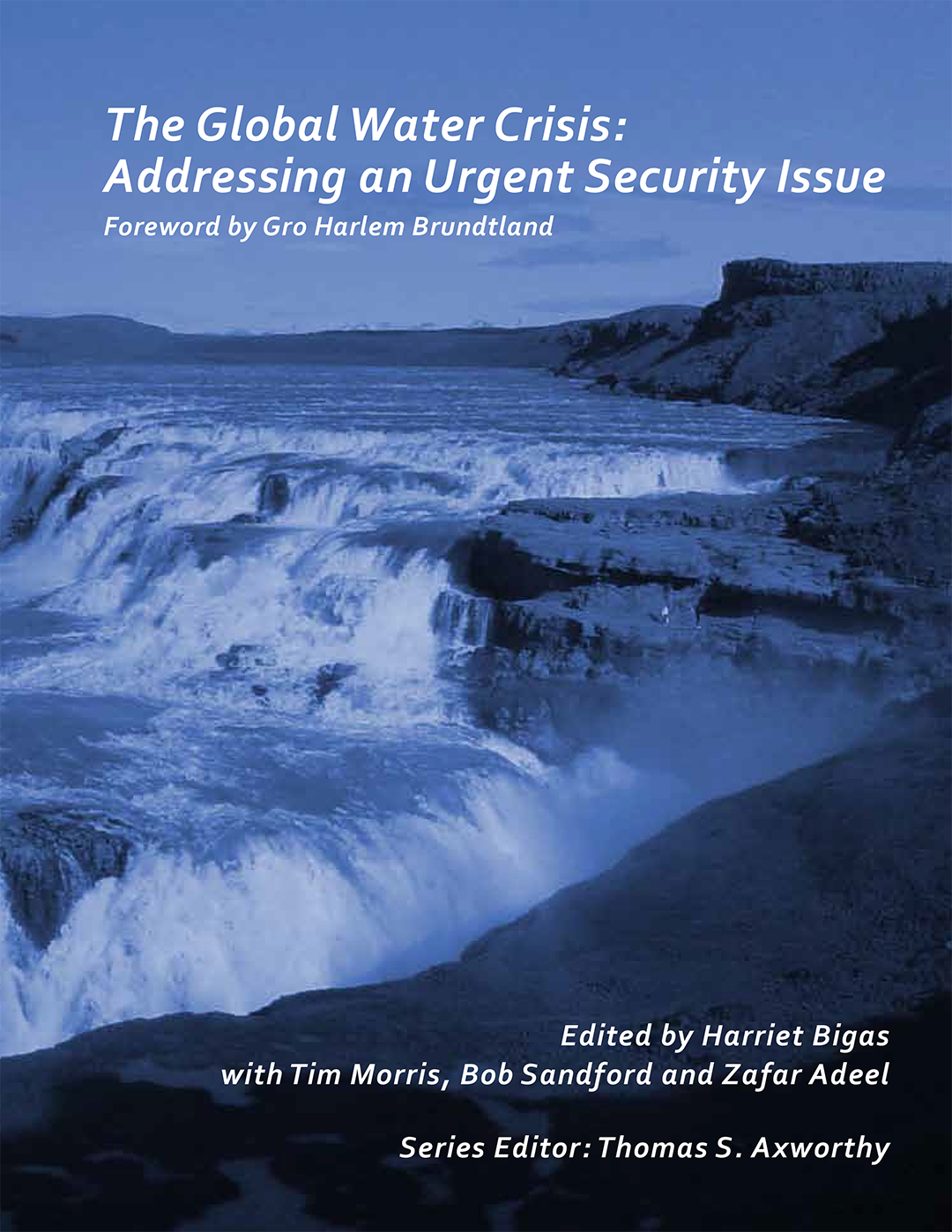
There is now a clear recognition by the global community that we are in the midst of a global water crisis. As shifting population dynamics and growing economic activity place an increased demand on finite fresh water resources, governments struggle to secure the needs of their citizens by ensuring access to an adequate amount of food at reasonable cost, a reliable energy supply, a robust water infrastructure and supply system, all while continuing to sustain economic growth. Meeting these challenges is a tall order if we are also to consider that there must be enough water to support essential ecosystem functions and services, and that climate change will have adverse impacts on the global water cycle. Nonetheless, the global community must strive to achieve critical development targets by ensuring adequate access to safe water and sanitation services, alleviating poverty for the world’s ‘bottom billion’, and bridging the gender divide.
What is becoming increasingly clear is that water can play a key role in assuring a secure future, at the individual level, but also at the national, regional and global levels. Water is the key link to securing a peaceful future: by stimulating cooperation and innovation, and by offering opportunities to ensure equity, promote development, and support growth – so long as it is used, managed, governed and shared wisely.
Together with the Walter and Duncan Gordon Foundation and the United Nations University Institute for Water, Environment and Health, the InterAction Council joins the global dialogue on the world’s water crisis and its implications for global security by bringing together experts in the water and policy communities through the launch of its book The Global Water Crisis: Addressing an Urgent Security Issue.
With contributions from leading water experts around the world, this book addresses the role water must play in achieving global security through increased political and environmental stability. The authors argue that water can be used to support development as a means to increasing security at the individual level, and the authors also explore the legal dimensions surrounding the declaration by the United Nations of water and sanitation as a human right. Reactions from world leaders underline the need for long-term political commitment and ownership to addressing the water crisis and identify water as a key factor for securing peace and human well-being in the long term.

